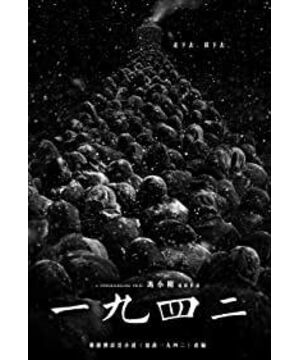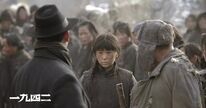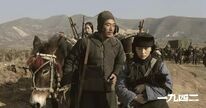Back to 1942 Negative Review
2022-03-05 08:01
"Untitled Remembering 1942 Project" is a cruel story about "human cannibalism", but director Xiaogang Feng simplifies a complicated story. The film exposes a great void, such as the abruptly stopped priests and clues of faith, a sense of negativity that cannot continue to be explored. In terms of the most basic response to the victims, "Untitled Remembering 1942 Project" is not too convincing. At least in terms of actor performance and character modeling, Xiaogang Feng did not show the strength to prepare for 18 years at all, and he could not let people feel the real emotions of the characters. The film lists a bunch of things without really summarizing the inferences, but just sloppy
.
In this film, director Xiaogang Feng put on an air, like a storyteller, and made a panoramic narration, making the audience seem to return to the era of teahouses: how the national government was, how were the people, and how were the Japanese . After a series of stories were told, many viewers felt that the victims were suffering, but the audience still could not feel the pain to the bottom of their bones and their internal organs. They could only find themselves in the broken limbs and stumps or the girls who sold their children. This kind of story processing method of imposing an external force to promote the emotional direction is very low-level, far less than Xiaogang Feng's work "Assembly" of the same theme
.
The subtext of "Untitled Remembering 1942 Project" to the famine fugitives "mourning their misfortune and angering them" implies a cultural stance that pits the elite against the masses and makes the elite the saviour of the masses; however, this Ideology is both biased and dangerous. Another moral dilemma of the film is the selective use of historical materials by the film's creator. Some people participated in the research of historical materials and believed that Chiang Kai-shek was far from being as innocent as the film portrayed, and the merits and demerits of Henan Governor Li Peiji and Military Commander Jiang Dingwen in this incident were exactly the opposite of their performance in the film. Relying on the Japanese army to release food to be rescued, and then help the Japanese to fight against the Chinese army" is actually a fallacy of partial generalization
.
Extended Reading











